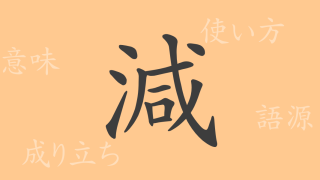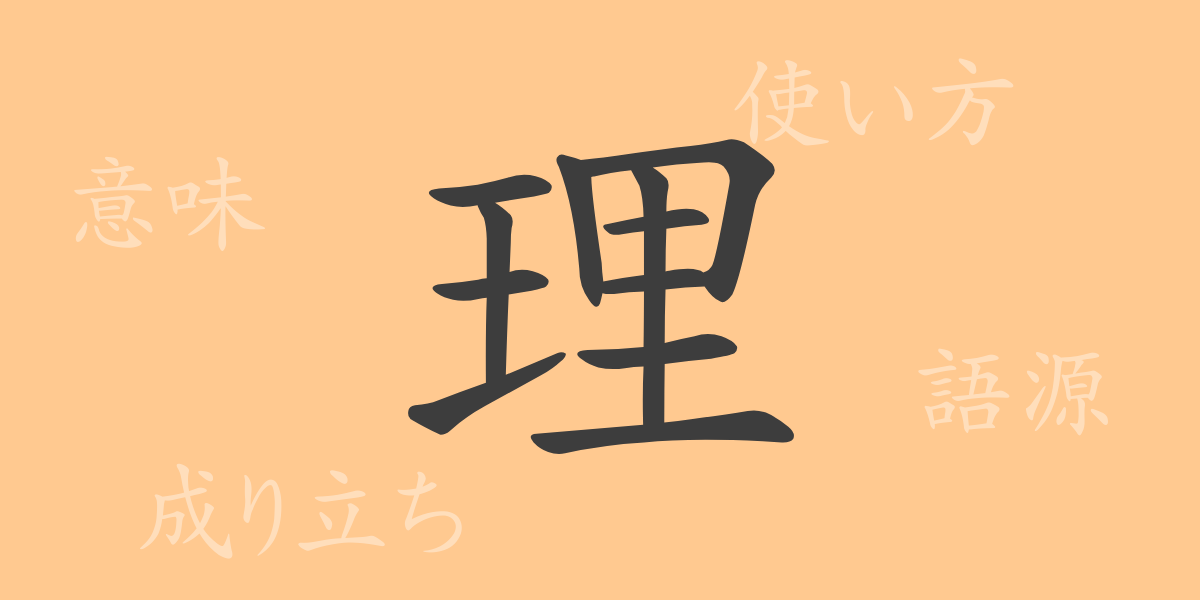The Japanese language encompasses a vast array of kanji characters, each with its own unique history and meaning. Among them, the kanji “理” (ri) is deeply rooted in our daily lives and is used in various contexts. In this article, we will focus on the kanji “理” (ri), delving into its origins, meanings, usages, and even exploring various idioms and proverbs that feature this character, uncovering its charm in depth.
Origins of 理 (ri)
The kanji “理” (ri) originated in ancient China as a term depicting patterns observed when cutting jade. The natural patterns found in jade came to signify order and structured designs, leading to the abstract concept of “理” (ri). This kanji is used to denote fundamental principles or reasons behind things and has been adopted with similar meanings in Japan.
Meanings and Usages of 理 (ri)
The kanji “理” (ri) carries meanings such as “understanding the principles of things,” “logic,” and “basis.” It is also used to convey notions of “beauty” and “being well-organized.” In usage, it can refer to abstract concepts or be employed to explain the order or structure of things. In Japanese, “理” (ri) can be seen in various terms such as reason, theory, and rationality.
Readings, Stroke Count, and Radical of 理 (ri)
The kanji “理” (ri) is one of the commonly used characters in the Japanese language.
- Readings: The on’yomi (音読み) reading is “リ” (ri), and the kun’yomi (訓読み) reading is “ことわり” (kotowari).
- Stroke count: “理” (ri) has 11 strokes.
- Radical: The radical for this kanji is “玉” (tama-hen).
Idioms, Expressions, and Proverbs Featuring 理 (ri) and Their Meanings
There are numerous idioms, expressions, and proverbs that include “理” (ri), each contributing to the richness of the Japanese language. Here are a few examples:
- 理解 (りかい, rikai): To clearly understand the principles of things in one’s mind.
- 理論 (りろん, riron): A systematic explanation of principles or laws of things.
- 無理 (むり, muri): Something that is unreasonable or doing something beyond one’s capability.
- 理不尽 (りふじん, rifujin): Something that is unreasonable or illogical.
- 道理で (どうりで, dōride): An idiom meaning “that’s why,” used to express understanding or agreement.
- 「理屈と膏薬はどこにでもつく」 (りくつとこうやくはどこにでもつく, rikutsu to kōyaku wa doko ni demo tsuku): A proverb meaning that with enough reasoning, any excuse can be made.
Summary on 理 (ri)
The kanji “理” (ri) symbolizes concepts such as logic, reason, and order from its formation to its modern-day usage. The extensive use of “理” (ri) in the Japanese language highlights the depth of the language. Understanding the kanji “理” (ri) in our daily lives enriches our comprehension of Japanese. We hope this article has sparked your interest in the meanings and charms of the kanji “理” (ri).

























